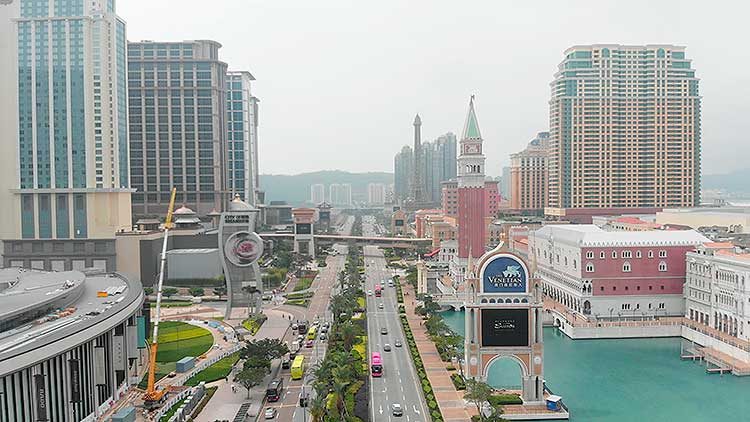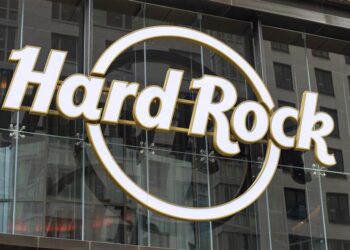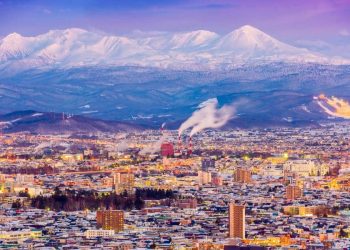This article is part 4 in a series of articles on the Macau Gaming Law Public Consultation Final Report. For links to all articles in the series, see the index at the end of this article.
As referred to in the previous articles in this series, the Macau government seems intent on completing the gaming concession relicensing process before the current concessions expire on 26 June 2022. It is also becoming apparent that the final outcomes of this re-licensing process may not be nearly as bad as initially feared by some – or even bad at all.
Having covered the issues of government authorization of dividends and the number of concessions to be issued, let’s move on to arguably the next most important question: what period will be granted for the next round of concessions?
The current concessions, issued after the 2002 liberalization of the Macau gaming industry, were 20 years in length with a possible extension for up to five years at the government’s discretion – that is a maximum possible extension of 25% of the original concession period (remember that number for later). That extension period can be granted in one or more extensions up to the maximum period of five years.
The historians amongst you will remember the two monopoly concession periods prior to the current concessions were 40 years apiece – so over the past century the three concession periods have averaged around 33 years in length.
Consultation document
The consultation document issued by the government late on 14 September 2021 to kick off the 45-day consultation period referred to the “uncertain economic outlook” back in 2001, noting that “the construction of large-scale tourism complexes and the payback period required a certain amount of time” and as a result “it was necessary to attract strong investors to bid for operations through this incentive.” [italics added]
Note the phrase “this incentive,” asserting that 20 years should be seen as a long concession period – an assertion that is certainly debatable, especially in Macau’s current economic climate! More about that later.
The consultation document goes on to say “the current investment environment and other conditions are different from those of that time” and that “an excessively long and inflexible grant period may cause certain obstacles and may reduce the enthusiasm of concessionaires to optimize and improve their own services to attract new customers.”
Hmm, not so sure about that.
The document goes on to say, “Considering and balancing the stability of the job market, the time required for investors to operate and develop, the reasonable expectations of returns, as well as the SAR government’s ongoing review of the industry’s development needs, it is recommended to review the concession period.” [italics added]
Although critical word here is “review,” the heavy implication is that the government thinks the new concessions should be shorter than the current 20 years.
Finally, the document suggests that consideration ought to be given to keeping the optional extension period in the same 25% ratio to the grant period. Note the document presents the extension period as a fait accompli, not even raising the question of whether there should or should not be provision for an extension period.
Public opinion
During the public consultation period, 171 opinions were received relating to the concession period, as follows:
| Opinion | Number | % of all responses | % of those with a clear attitude |
| Less than 20 years | 72 | 42.1% | 49.7% |
| Exactly 20 years | 56 | 32.8% | 38.6% |
| More than 20 years | 17 | 9.9% | 11.7% |
| No clear attitude/neutral | 26 | 15.2% | |
| TOTAL | 171 | 100.0% | 100.0% |
Public opinion during the consultation period mainly agreed with reducing the concession period and was overwhelmingly in favor of a maximum concession period of 20 years.
Different views given by the public during the consultation period were summarized in the report as follows:
- The concession period should be longer than 20 years, since new or large investment projects require a longer payback period and, if the concession period is too short, the concessionaires will be less proactive in making investments in Macau.
- The concession period should be 20 years.
- The concession period should be 15 years with the possibility of being exceptionally extended for another three to five years.
- The general opinion was a period of 10 years and, in exceptional circumstances, an extension period of one to 10 years.
- The concession period should be fixed between eight and 10 years.
- The concession period should be a maximum period of five years, only being extended for two and a half years in exceptional and reasonably explained cases.
- An extended concession period will allow the Macao SAR to link up with the wider China development plan.
- When setting the concession period, the concessionaires’ reasonable return on investment should be considered, with a view to increasing investor confidence and encouraging them to invest more resources in the development of diversified projects, ensuring the growth of the industry.
- Concessionaires should have sufficient time to plan the training of personnel and reinforce the employment stability of their workers, based on the interests of the healthy development of the Macao SAR in the long term, complying with the guidelines established for the training of qualified local staff and strategies for future development.
- If the concession period is too long, it will lead to a lack of flexibility and inertia amongst the concessionaires, causing them to lose their competitiveness in the market in the long term.
- As the casino equipment and facilities will revert to the Macao SAR at the end of the current concession period, new concessionaires may not need the time to build casinos, so the period of concession after the revision of the law should not be too long.
- The concession period should be linked to the corporate strength of concessionaires, according to their different financial capacities and investment plans, setting the concession period proportionally, to increase concession flexibility and reducing administrative costs associated with new tender bidding.
- The Macau government should focus on the investment plans of gaming operators during the concession period, and not simply the number of investment projects, introducing specific indicators in the new concession contracts, and if the concessionaires meet these standards, the government can directly extend their concessions.
- There should be a mid-term review mechanism, requiring concessionaires to submit reports, with a view to evaluating their performance.
Government response
The government provided an analysis of and response to the public’s views, noting, “Given the general development of Macau, the overly long and inflexible concession period may cause certain obstacles, bearing in mind that the current investment environment and land resources differ from the situation of the public tender held in 2002.”

The government response went on to give this as justification for why “the consultation document suggested the concession period should be reviewed” and then immediately noted “the highest percentage of opinions collected favored setting a concession period of less than 20 years.
“Considering the priorities for gaming industry development should be upgrading quality and the diversified and healthy development of Macau, the shortening of the concession period allows the Macao SAR greater opportunities to adjust according to development trends and policies, and to adjust the gaming industry in the most proper way and in due course, to ensure the gaming industry’s competitiveness.
The government response did, however, offer a glimmer of hope to those in favor of a longer concession period, stating, “Consideration should be given to fairness in setting the grant period. Therefore, a balance of various aspects must be considered, namely the stability of the employment market, the necessary payback time for the development and execution of activities by investors, and the need for the Macao SAR Government to carry out a continuous assessment of the gaming industry’s development.”
Why Macau should consider a 27-year concession period
While the government response is a very clear message that it’s in favour of a shorter concession period, I believe it would be in Macau’s interests to consider a longer concession period, for 27 years to the end of the 50-year One Country, Two Systems period on 20 December 2049. Yes, I was one of the 17 respondents suggesting a period longer than 20 years.
There are many reasons to suggest this.
Firstly, the days of “super profits” in Macau are behind us. Not only has the COVID-19 pandemic annihilated revenues in the past two years, but the recent developments in Macau’s junket industry show that VIP play (at least as we have known it) will be a thing of the past. Mainland China has demonstrated it is not afraid to “turn off the tap,” controlling the flow of tourists to Macau. Regional competition from places like the Philippines, South Korea, Vietnam, Australia and Singapore has increased. And eventually we will also be facing competition from Japan – and maybe even Thailand.
All of this arguably creates an even greater uncertain economic outlook than concession bidders faced in 2002. And isn’t there a good argument that the concessionaires are entitled to a “catch up” period for the past two years of economic disaster – during which they have done everything the government has asked of them? Many commentators are saying the industry is unlikely to return to 2019 levels until as far away as 2025!
Further, it would be wrong to assume that no more investment is required in Macau. Parcels 7 and 8 on the Cotai Strip remain undeveloped, there are later phases of existing resort facilities under construction, and there may be other as-yet-unannounced developments in the pipeline. The government is asking concessions to develop more non-gaming facilities. Then there is the “refurbishment factor” – to maintain Macau’s high standards concessionaires need to refurbish their facilities every seven to 10 years. All this means we could see US$40 billion or US$50 billion or even more being invested in Macau over the next decade or two, assuming the concessionaires can justify it to their financiers and their shareholders – and what better justification than providing a significant period to seek returns on this enormous investment?
If the government finds 27 years simply too unpalatable, they could build in regular reviews, for example every five years or so, to ensure concessionaires are staying on track with their commitments. If the concessionaires are complying, they get to continue, but if not, they could be penalized or even lose their license mid-term. Formal periodic reviews like this already exist in some gaming jurisdictions.
If a term of 10 or 15 years is offered now, there will an awkward term of 12 or 17 years in the runup to 2049, and any tender for that period will have the sword of Damacles hanging over it – “What happens in 2049? Do we simply lose it all?”
We will just have to wait until the draft amendments are made public to know for certain but given the tone of the government’s language in the public consultation final report, I think it’s quite clear the government has its heart set on shorter concessions in the future, and despite my personal reservations, that’s what I expect to see.
MACAU GAMING LAW PUBLIC CONSULTATION FINAL REPORT SERIES
Article Index
Part 1: Introduction
Part 2: Government Authorization of Dividends
Part 3: How many concessionaires?
Part 4: Concession length?




































